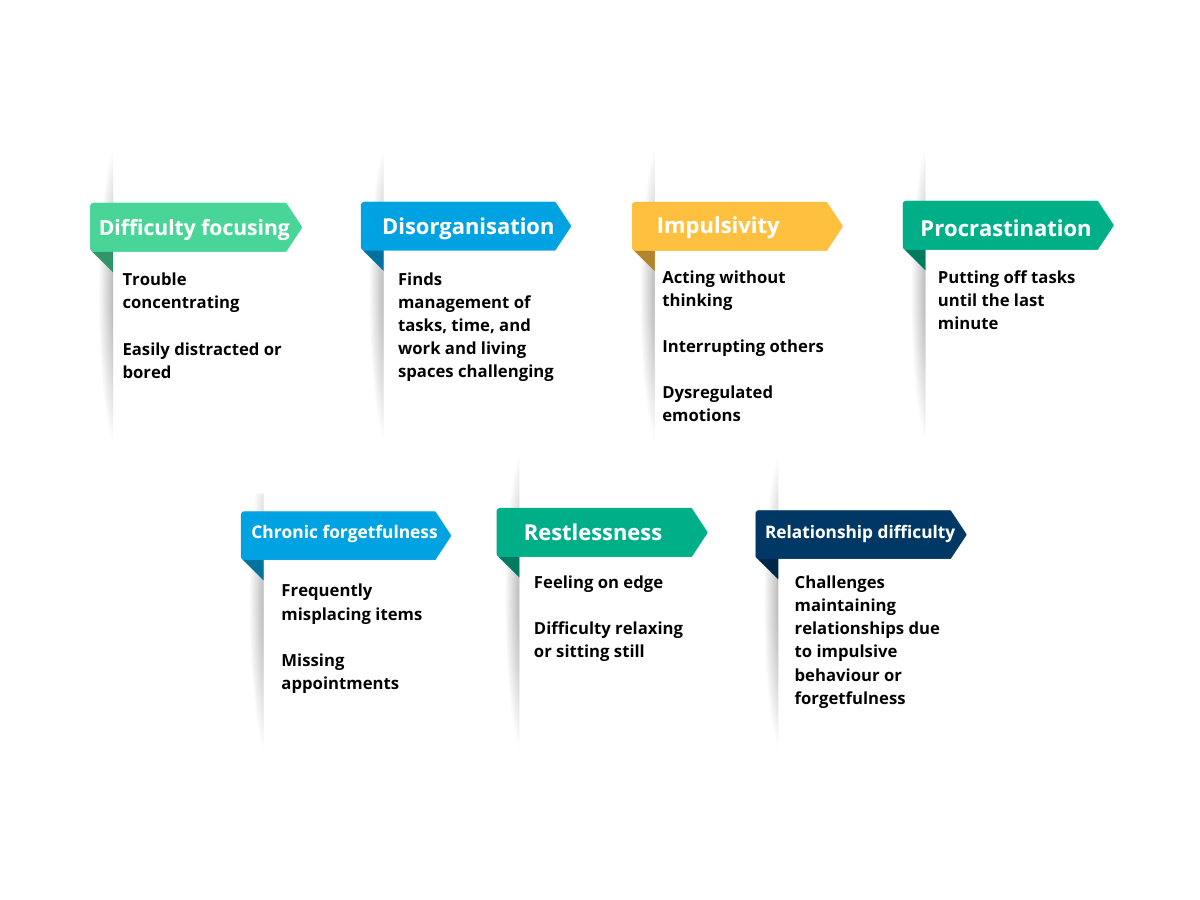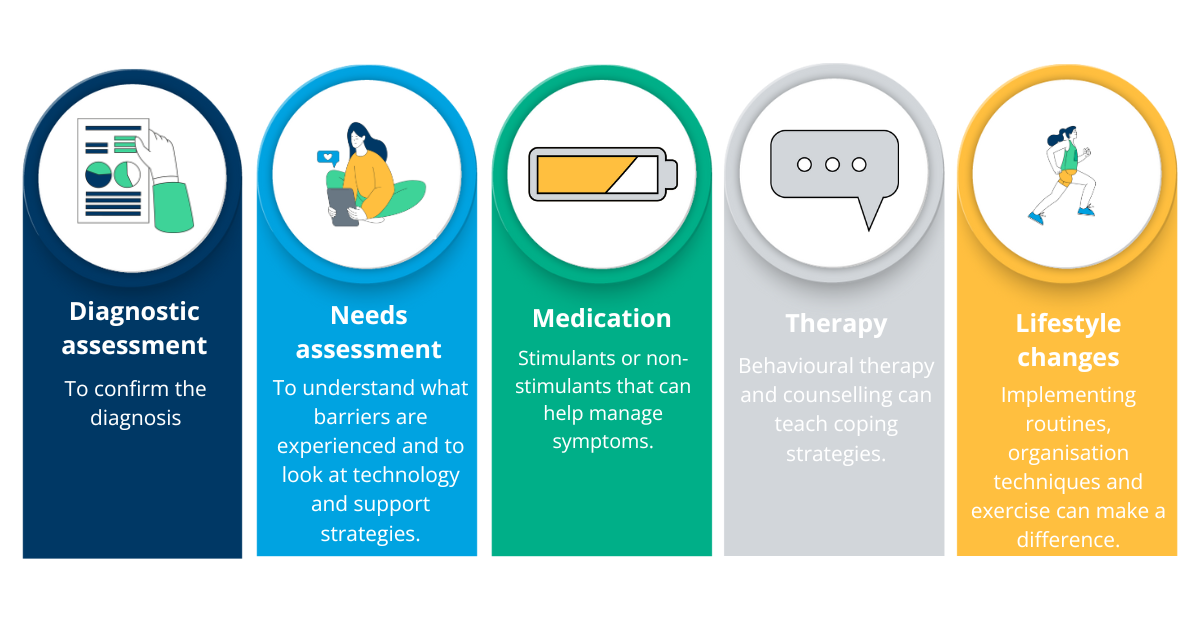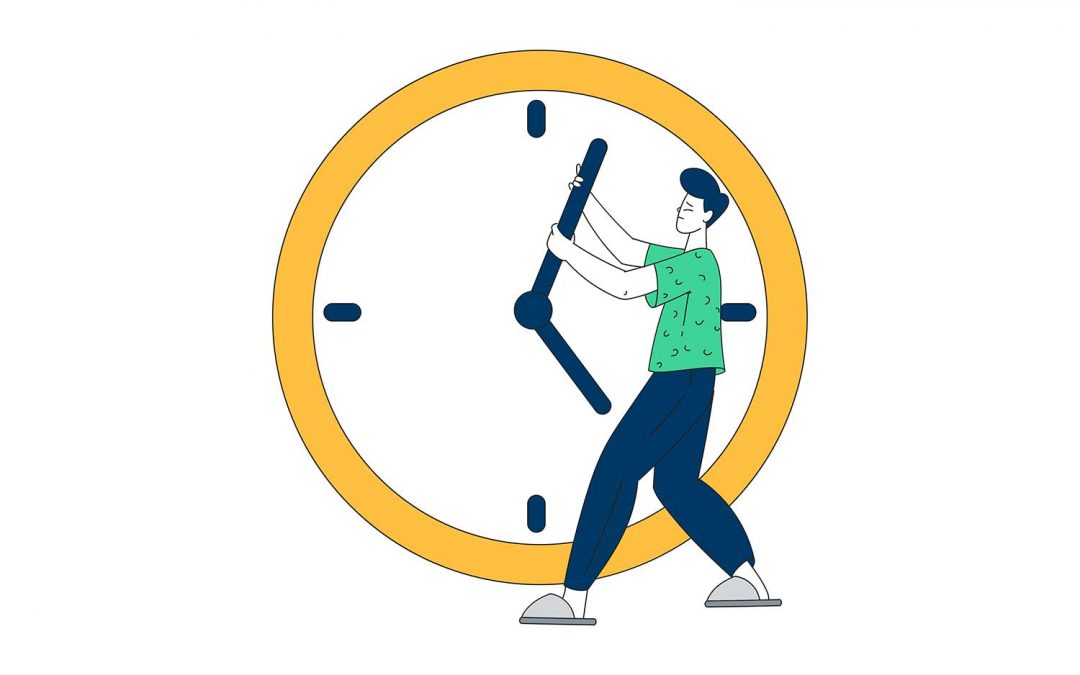There is a common myth that Attention–Deficit/Hyperactivity Disorder (ADHD) only applies to children, but the symptoms can and often do persist into adulthood. Frustratingly, ADHD in adults is commonly undiagnosed or misattributed. In this blog, we’ll shed light on the symptoms of ADHD in adults. We’ll explore how symptoms can differ from ADHD in childhood, common misconceptions surrounding ADHD, and how our services can support you to manage your ADHD and excel in everyday life.
How ADHD differs in adults and its specific impacts
While the core symptoms of ADHD in adults remain similar to symptoms observed in children, they often present differently and can have distinct effects. These include:
- Impulsivity: In adults, this may lead to impulsive decisions, difficulty regulating strong emotions such as anger or sadness, and reckless behaviour
- Inattention: Adults may struggle with organisation, time management, and remembering important dates or deadlines, impact on their work and personal lives
- Hyperactivity: While less common, adults with ADHD may experience restlessness, fidgeting, and difficulty sitting still physically or mentally.
Common symptoms of ADHD in adults

Myth-busting common misconceptions
Myth: ADHD is just a childhood condition.
– Fact: ADHD often persists into adulthood, affecting work, relationships, and daily life.
Myth: ADHD is overdiagnosed and overmedicated.
– Fact: ADHD diagnosis and treatment are carefully considered, involving comprehensive evaluations and various treatment options beyond medication.
Myth: ADHD is a result of laziness or lack of discipline.
– Fact: ADHD is a neurodevelopmental condition, not a choice, and it can be managed with the right strategies and support.
What help is available:
ADHD can be managed effectively with the right support and treatment. This may include:

How can Aim Forward help?
Although you don’t need a diagnosis to accept and start embracing your neurodivergence, some people feel they benefit from being able to associate specific terms with their experiences. A diagnostic assessment can help identify the strengths and weaknesses you experience and equip you with recommended strategies for learning and working your way.
A diagnosis of specific learning difficulty (SpLD) with traits of ADHD is also recognised under the 2010 Equality Act. This can help you access reasonable adjustments at work or personal learning plans at school or university. You’ll also be eligible for government support schemes such as Access to Work or Disabled Students’ Allowance.
You can also talk to our support team about having a needs assessment with us if you’re experiencing symptoms of ADHD . Needs assessments are an informal meeting where you chat with one of our friendly assessors and co-create strategies to help you excel in everyday life. The needs assessment will help you understand your diagnosis, how your cognitive profile impacts your learning and working, and your strengths and weaknesses. They will then work with you to create personalised strategies to help you learn and work your way, covering areas like:
- Reading and research
- Writing and composition
- Meetings, presentations and note-taking
- Time management and organisation
- Revision and exam preparation
- Environment
- Wellbeing
- Potential reasonable adjustments (if you work for an employer)
They may also recommend assistive technologies that might support you day-to-day, like:
- Wellbeing and mental health software or apps
- Text-to-speech software
- Speech-to-text software
- Mind mapping software
- Spell checking software
- Grammar checkers
- Note-taking software and apps
Our diagnostic and needs assessments aim to provide solutions to shape your future, empowering you with confidence and knowledge about your neurodivergence so that you can excel in everyday life.

